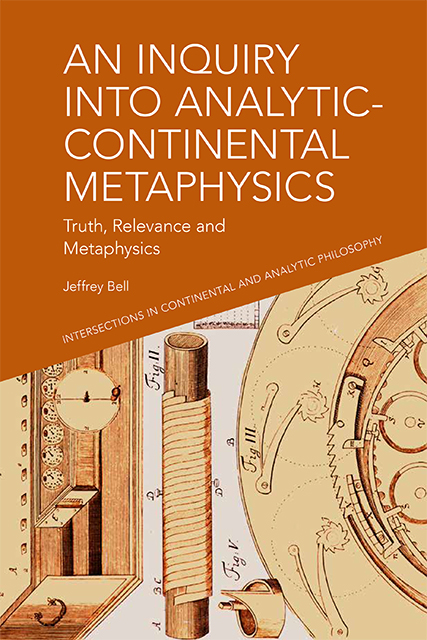Book contents
- Frontmatter
- List of Contents
- Acknowledgements
- Introduction
- §1 Problem of the New
- §2 Problem of Relations
- §3 Problem of Emergence
- §4 Problem of One and Many
- §5 Plato and the Third Man Argument
- §6 Bradley and the Problem of Relations
- §7 Moore, Russell and the Birth of Analytic Philosophy
- §8 Russell and Deleuze on Leibniz
- §9 On Problematic Fields
- §10 Kant and Problematic Ideas
- §11 Armstrong and Lewis on the Problem of One and Many
- 12 Determinables and Determinates
- 13 The Limits of Representational Thought
- 14 Learning from a Cup of Coffee
- 15 Carnap and the Fate of Metaphysics
- 16 Truth and Relevance
- Conclusion
- Bibliography
- Index
§10 - Kant and Problematic Ideas
Published online by Cambridge University Press: 25 October 2023
- Frontmatter
- List of Contents
- Acknowledgements
- Introduction
- §1 Problem of the New
- §2 Problem of Relations
- §3 Problem of Emergence
- §4 Problem of One and Many
- §5 Plato and the Third Man Argument
- §6 Bradley and the Problem of Relations
- §7 Moore, Russell and the Birth of Analytic Philosophy
- §8 Russell and Deleuze on Leibniz
- §9 On Problematic Fields
- §10 Kant and Problematic Ideas
- §11 Armstrong and Lewis on the Problem of One and Many
- 12 Determinables and Determinates
- 13 The Limits of Representational Thought
- 14 Learning from a Cup of Coffee
- 15 Carnap and the Fate of Metaphysics
- 16 Truth and Relevance
- Conclusion
- Bibliography
- Index
Summary
1. Kant and Plato
Kant uses the term Ideas at the moment in his most important work when he takes up the theme that gives that work its title – the critique of pure reason. Although Kant recognises that a ‘thinker often finds himself at a loss for the expression which exactly fits his concept’, and he was no doubt stretching the use of concepts beyond what others might recognise as legitimate, he nonetheless concludes that ‘To coin new words is to advance a claim to legislation in language that seldom succeeds’ (Kant 1965, 309, A312/B368). Kant thus opts to borrow Plato's term Ideas. The choice of term is appropriate, however, for as Kant argues, ‘Plato made use of the expression “idea” in such a way as quite evidently to have meant by it something which not only can never be borrowed from the senses but far surpasses even the concepts of understanding … inasmuch as in experience nothing is ever to be met with that is coincident with it’ (310, A313/B370). And the term Idea is appropriate as well for clarifying the role reason plays in human life, since, as Plato and Kant will both argue, ‘our reason naturally exalts itself to modes of knowledge which so far transcend the bounds of experience that no given empirical concept can ever coincide with them’ (310, A314/B371). We can thus see that when Deleuze uses the term Ideas in referring to problematic fields, he is also following Plato and Kant in arguing for something that is not to be confused with that which can be given in experience.
In drawing the term Idea from Plato and using it both to capture the sense of that which can never be given in experience and to characterise the tendency of reason to move towards Ideas, that is, towards that which transcends ‘the bounds of experience’, Kant is thus setting up an important contrast between Ideas and that which can be given within ‘the bounds of experience’. To clarify the latter, Kant uses the term ‘concepts of understanding’, which are ‘thought a priori antecedently to experience and for the sake of experience’ (Kant 1965, 308, A310/B367).
- Type
- Chapter
- Information
- An Inquiry into Analytic-Continental MetaphysicsTruth, Relevance and Metaphysics, pp. 81 - 98Publisher: Edinburgh University PressPrint publication year: 2022



